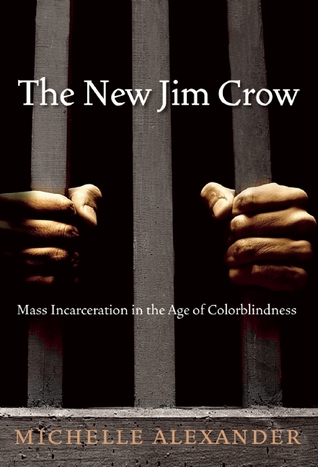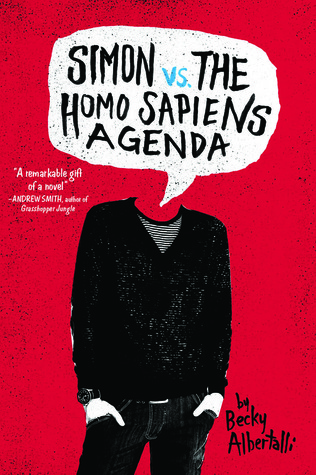So! The current pick for the Social Justice Book Club (#SJBookClub) is The New Jim Crow by Michelle Alexander. Our club is a little more structured this time, with multiple posts planned for the month. For more info about the club and our schedule for this book, visit our host Kerry McHugh’s blog Entomology of a Bookworm.
1. Where do you plan on discussing this book the most? Feel free to share links to your blog, social media channels, snap handles, etc.
I’m planning to be here on my blog and tweeting (@alisa) with our group hashtag #SJBookClub. I use Tweetdeck (it’s free), and I have a column set up there just for the club so I can see what everyone is talking about.
There are three posts planned for this book (intro, midway, and wrap-up) and I want to post for all three, even if I am a little behind. I’m still waiting on a library hold.
2. Why did you decide to join in on the reading and/or discussion of this book?
I’ve been with the club since the start, and it’s pretty hard to get rid of me if I don’t want to be gotten rid of. I used to serve in a social justice position at a nonprofit before I moved overseas, and I expect that talking about and participating in social justice activism will always be a part of my life.
Both of our prior reads were also related to injustice in the US industrial prison complex (my thoughts on Just Mercy and The Long Shadow of Small Ghosts), and I’m actually glad that we are getting a thorough look at a singular topic.
3. In the very first line of the introduction to the book, Michelle Alexander writes, "This book is not for everyone." What do you make of that as an entree into The New Jim Crow?
I read a quarter of this book over a year ago and put it on pause. But from what I remember, Alexander uses strong, direct sentences and hard data to shake the reader into alertness about what is going on in America: institutionalized racism.
I had a conversation with a friend of mine recently about how as white women who are actively, daily trying to educate ourselves about being aware of the language we use and the comments or even body gestures we make to break the cycle of racism in our lives, we still make mistakes, we still get things wrong, we still don’t even realize that something is racist/offensive/condescending, and we feel guilty about that.
That guilt and a resulting desire to overcompensate is called white fragility and it’s a real thing.
I think that’s what the author means when she says that her book is not for everyone. Feelings are going to get hurt and some people aren’t mature enough to handle those hurt feelings so they react with their hackles raised, silence, hostility, guilt, fear, argumentation.
4. What, if anything, are you most looking forward to about this book?
I want to know about specific legislation that went into place after the civil rights acts as a way to compensate or get back to preserving legalized racism. For example, today we think of gerrymandering as a way that Republicans legally ‘steal’ votes from Democrats. But before that, gerrymandering was a way to steal votes from African Americans.
I’m looking forward to chatting more and I'm crossing my fingers that my hold comes in soon enough for me to join in for the mid-month check-in! It's not too late to join us!
1. Where do you plan on discussing this book the most? Feel free to share links to your blog, social media channels, snap handles, etc.
I’m planning to be here on my blog and tweeting (@alisa) with our group hashtag #SJBookClub. I use Tweetdeck (it’s free), and I have a column set up there just for the club so I can see what everyone is talking about.
There are three posts planned for this book (intro, midway, and wrap-up) and I want to post for all three, even if I am a little behind. I’m still waiting on a library hold.
2. Why did you decide to join in on the reading and/or discussion of this book?
I’ve been with the club since the start, and it’s pretty hard to get rid of me if I don’t want to be gotten rid of. I used to serve in a social justice position at a nonprofit before I moved overseas, and I expect that talking about and participating in social justice activism will always be a part of my life.
Both of our prior reads were also related to injustice in the US industrial prison complex (my thoughts on Just Mercy and The Long Shadow of Small Ghosts), and I’m actually glad that we are getting a thorough look at a singular topic.
3. In the very first line of the introduction to the book, Michelle Alexander writes, "This book is not for everyone." What do you make of that as an entree into The New Jim Crow?
I read a quarter of this book over a year ago and put it on pause. But from what I remember, Alexander uses strong, direct sentences and hard data to shake the reader into alertness about what is going on in America: institutionalized racism.
I had a conversation with a friend of mine recently about how as white women who are actively, daily trying to educate ourselves about being aware of the language we use and the comments or even body gestures we make to break the cycle of racism in our lives, we still make mistakes, we still get things wrong, we still don’t even realize that something is racist/offensive/condescending, and we feel guilty about that.
That guilt and a resulting desire to overcompensate is called white fragility and it’s a real thing.
I think that’s what the author means when she says that her book is not for everyone. Feelings are going to get hurt and some people aren’t mature enough to handle those hurt feelings so they react with their hackles raised, silence, hostility, guilt, fear, argumentation.
4. What, if anything, are you most looking forward to about this book?
I want to know about specific legislation that went into place after the civil rights acts as a way to compensate or get back to preserving legalized racism. For example, today we think of gerrymandering as a way that Republicans legally ‘steal’ votes from Democrats. But before that, gerrymandering was a way to steal votes from African Americans.
I’m looking forward to chatting more and I'm crossing my fingers that my hold comes in soon enough for me to join in for the mid-month check-in! It's not too late to join us!


